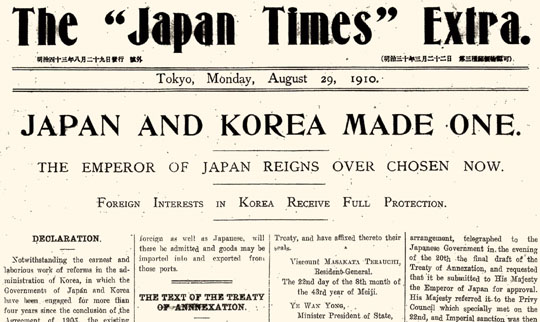August 22 is the 100th anniversary of the signing of the Treaty of Annexation between Japan and Korea that came into effect on Aug. 29, 1910 — commemorated now in North and South Korea as a day of shame.
It is 65 years since colonial rule ended, but the scars of the past have not healed and bilateral relations remain vexed by history. Numerous aologies by Japanese politicians, and one by Emperor Akihito in 1990, have been undone by discordant voices of denial and unrepentant justification. These mixed messages reflect a lack of consensus in Japan about its colonial era. They also help explain why Koreans remain seething and indignant, unconvinced by Japan's sincerity and unwilling to extend a hand to the perpetrator.
On Aug. 10, 2010, Prime Minister Naoto Kan issued an apology to South Korea regarding colonial rule, expressing deep regret over the suffering inflicted, stating, "The people of South Korea at the time were deprived of their nation and culture, and their ethnic pride was deeply harmed by colonial rule against their will." The head of the ruling Democratic Party of Japan added, "Those who render pain tend to forget it while those who suffered cannot forget it easily."



